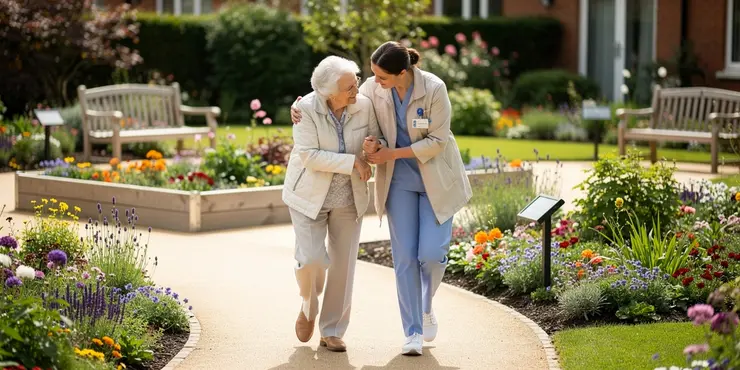
Find Help
More Items From Ergsy search
-
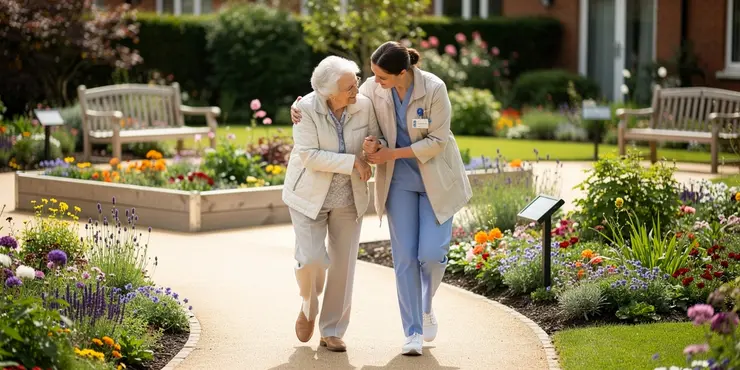
What is a dementia-friendly community?
Relevance: 100%
-
What is a dementia-friendly community?
Relevance: 52%
-
What is a dementia-friendly community?
Relevance: 52%
-

Are there mentorship programs for community helpers?
Relevance: 31%
-

What is the importance of self-care for community helpers?
Relevance: 30%
-

Are there online resources available for community helpers?
Relevance: 30%
-
What help is available to helpers in the community?
Relevance: 30%
-

Can community helpers participate in policy-making?
Relevance: 30%
-
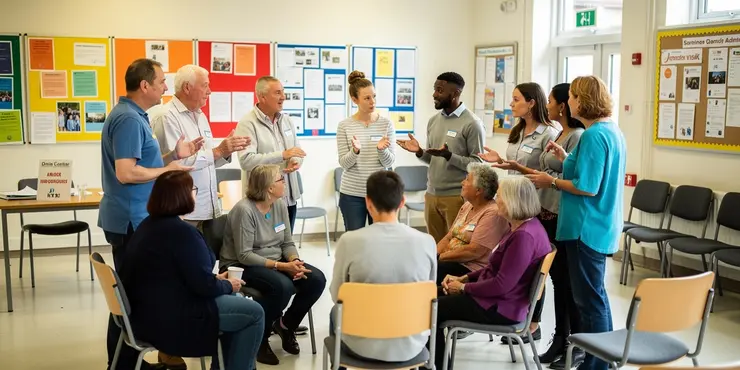
What is the role of community hubs in supporting helpers?
Relevance: 28%
-
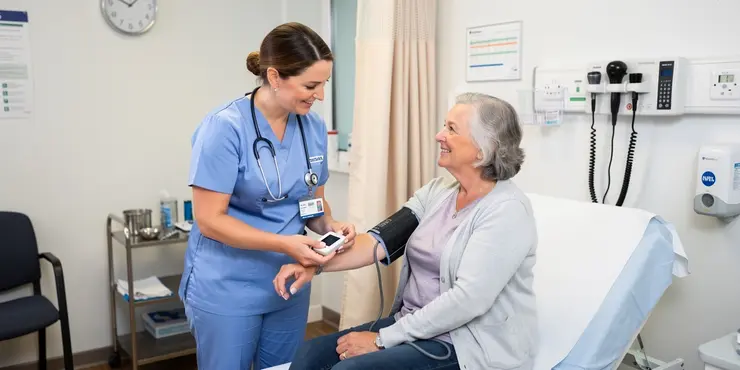
Can community helpers receive financial assistance?
Relevance: 28%
-

What types of support are available for community helpers?
Relevance: 28%
-
Do community helpers have access to legal advice?
Relevance: 28%
-
Impact of UK Housing Crisis on Local Communities
Relevance: 28%
-

Where can community helpers find networking opportunities?
Relevance: 27%
-
How can community helpers access educational resources?
Relevance: 27%
-
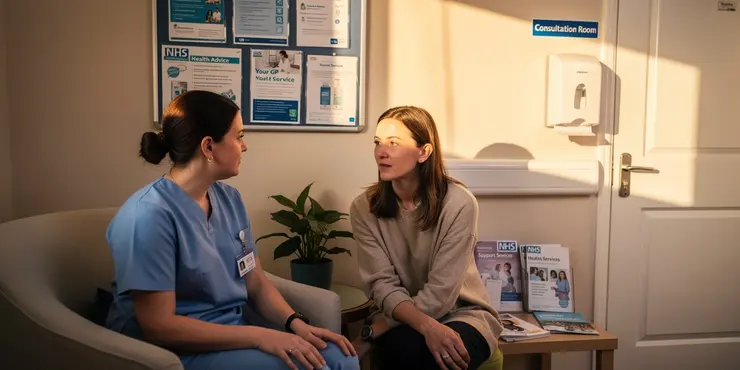
What are peer support groups for community helpers?
Relevance: 27%
-
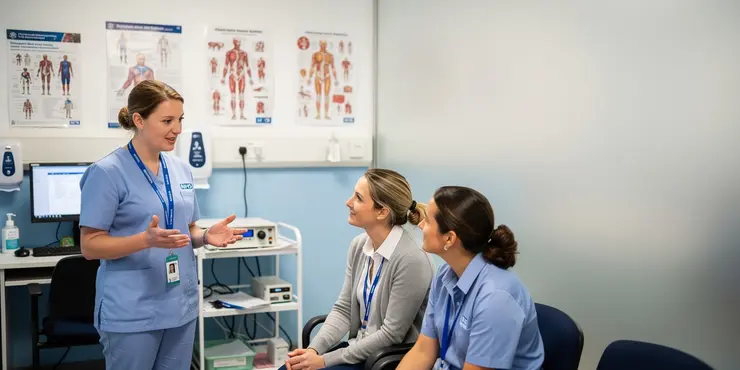
How do community helpers stay updated on best practices?
Relevance: 27%
-
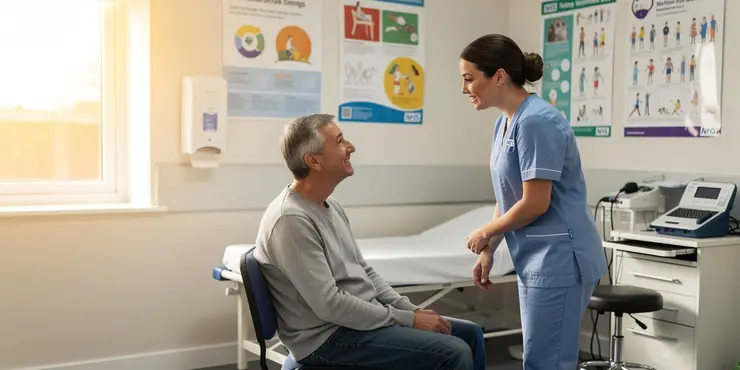
How can community helpers prevent burnout?
Relevance: 27%
-

How can community helpers access emergency assistance?
Relevance: 27%
-
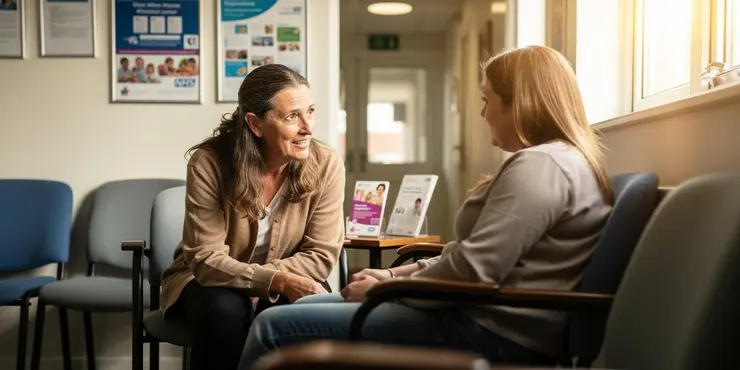
Can community helpers access physical health resources?
Relevance: 27%
-
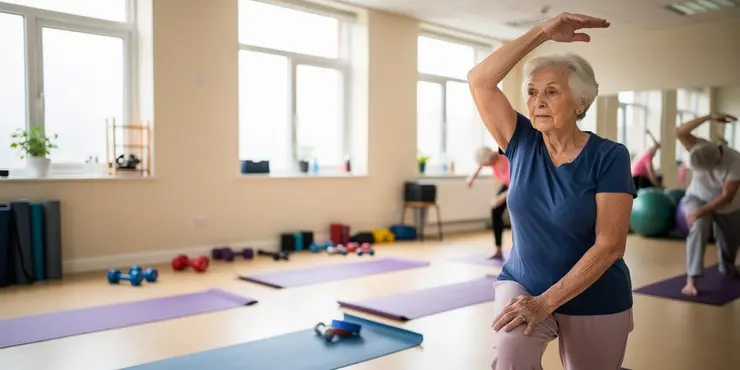
What is the role of community centers in supporting senior citizens?
Relevance: 27%
-
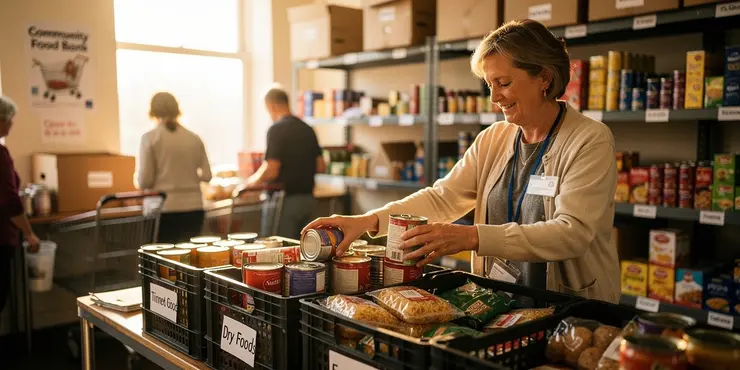
The Rise of Community Food Banks: Combating Hunger Locally
Relevance: 27%
-
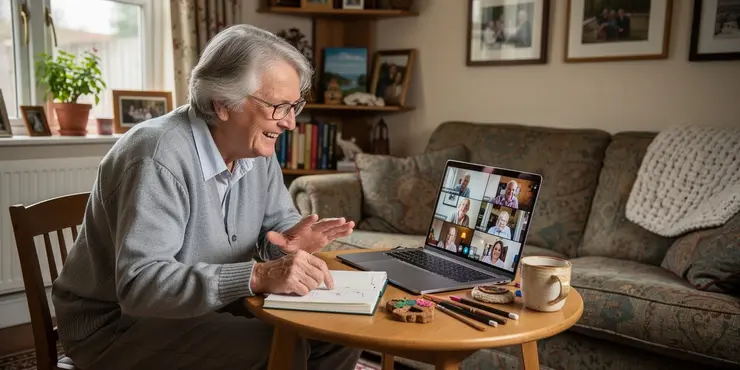
Are there any online communities for older adults interested in hobbies?
Relevance: 27%
-
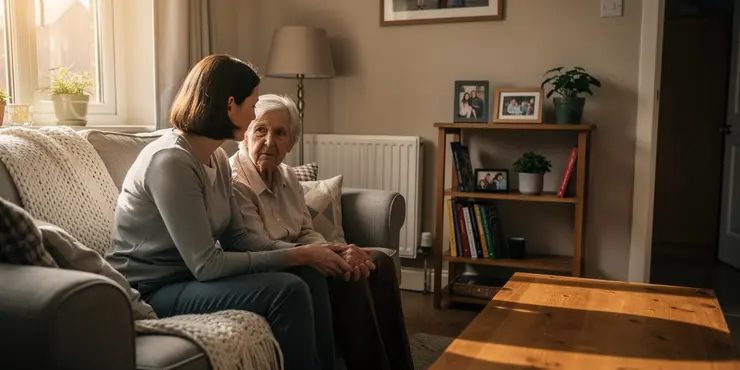
What online communities exist for carers of people with Alzheimer's?
Relevance: 27%
-
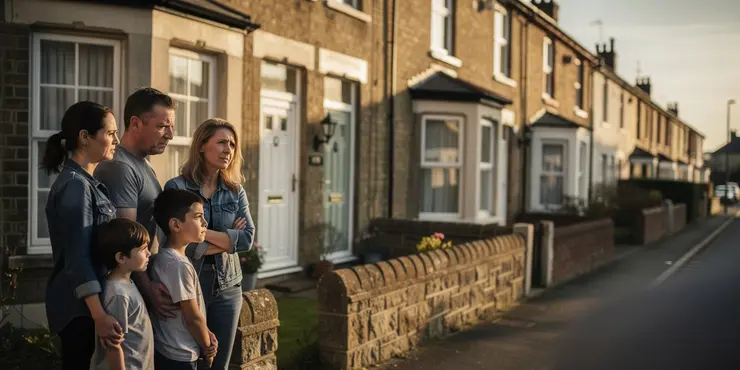
Impact of Housing Shortage on Local Communities
Relevance: 26%
-
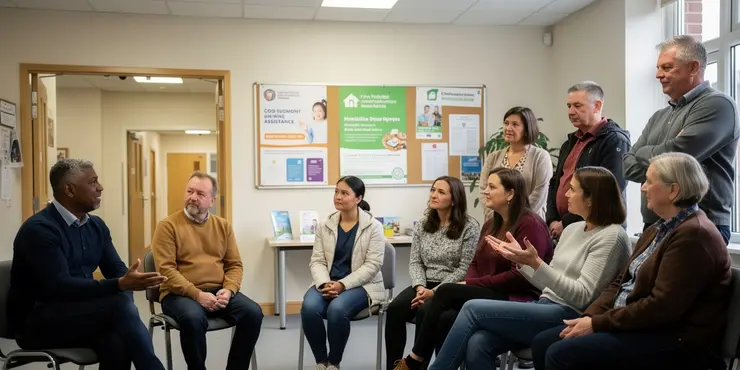
Addressing the Rising Cost of Living: Community Support and Resources
Relevance: 26%
-
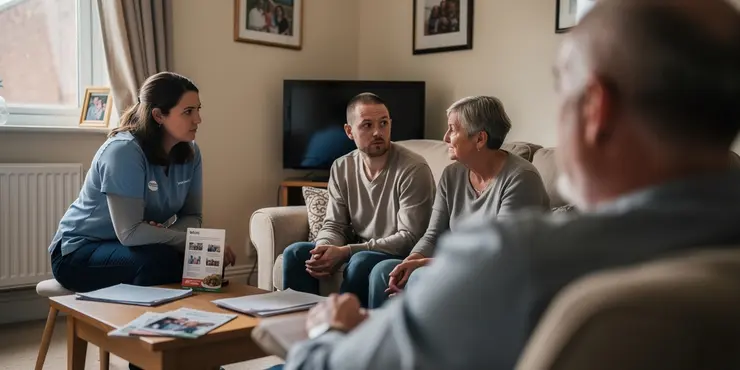
Addressing the Cost of Living Crisis: Community Support and Resources
Relevance: 24%
-
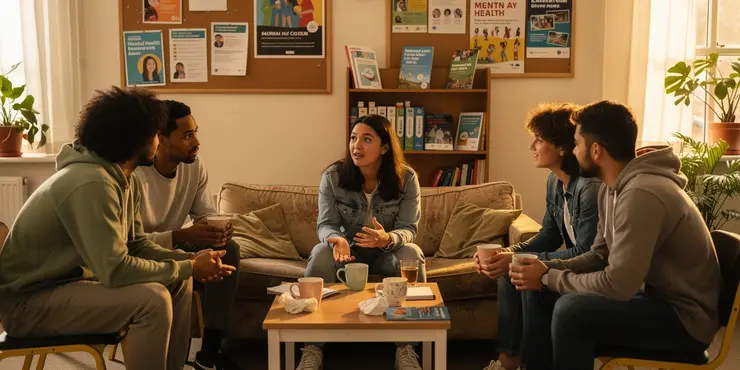
Tackling Youth Mental Health: Community Initiatives and Solutions
Relevance: 24%
-
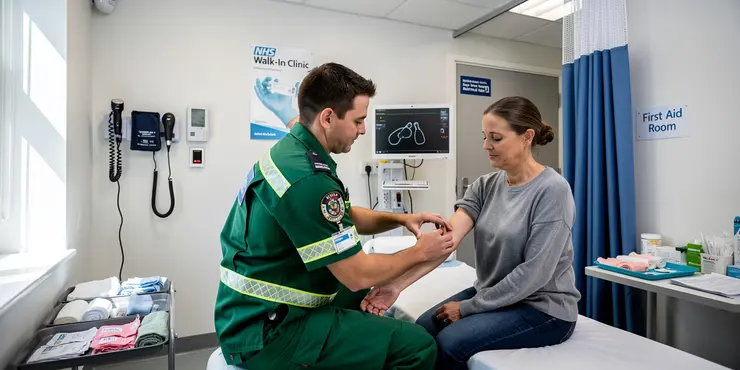
Are there training programs available for community helpers?
Relevance: 23%
-
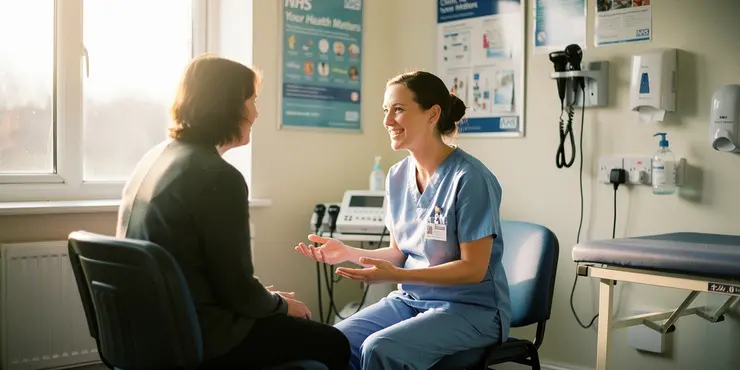
Can community helpers be recognized for their contributions?
Relevance: 23%
-
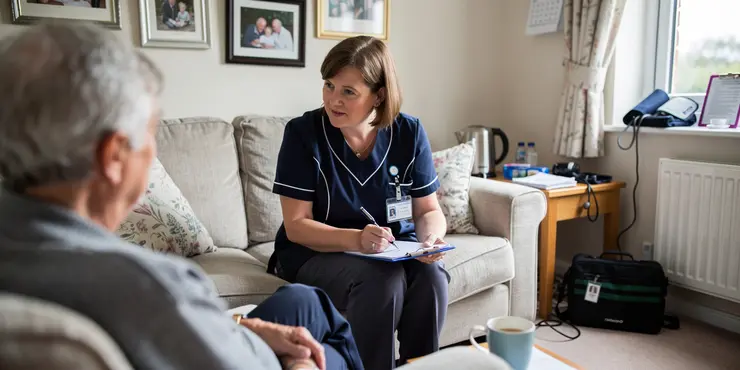
Do community helpers need to be volunteers, or can they receive compensation?
Relevance: 21%
-
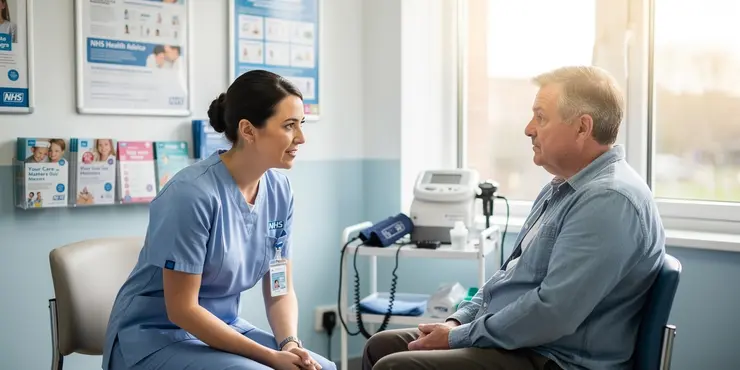
What role do nonprofit organizations play in supporting community helpers?
Relevance: 20%
-
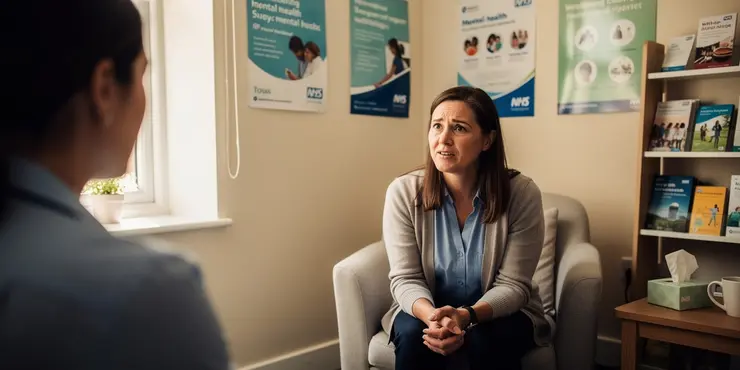
How can community helpers get mental health support?
Relevance: 19%
-
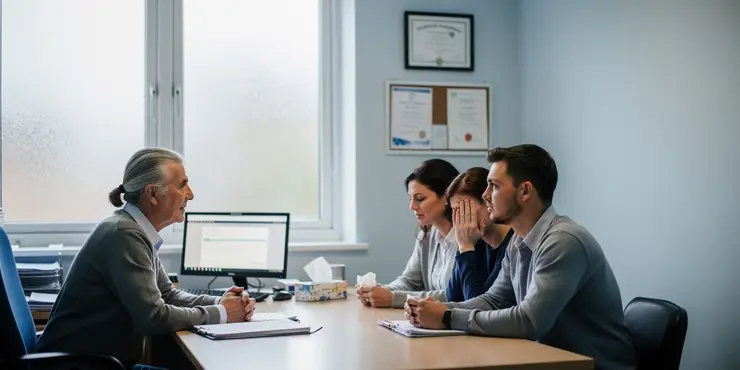
Funeral Costs - Where to get help? - Community Legal Education
Relevance: 18%
-
Living with dementia | NHS
Relevance: 18%
-
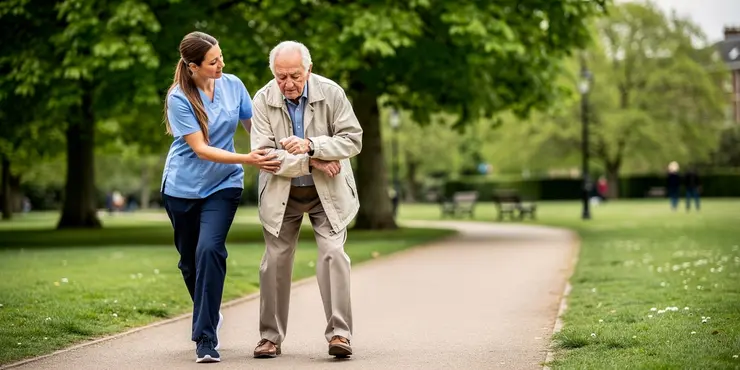
What lifestyle changes can help someone with dementia?
Relevance: 13%
-
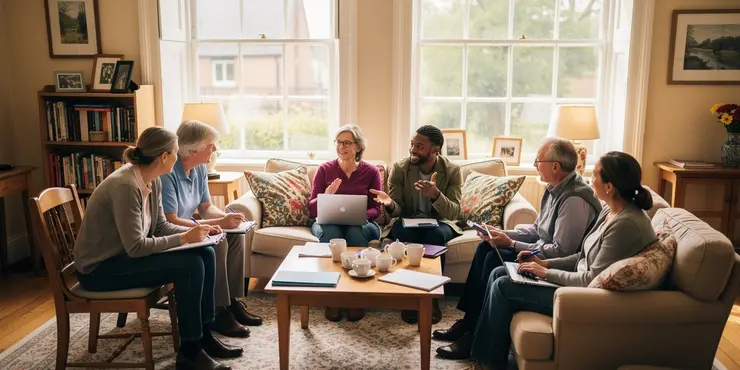
Can neighborhood associations help resolve this issue?
Relevance: 10%
-
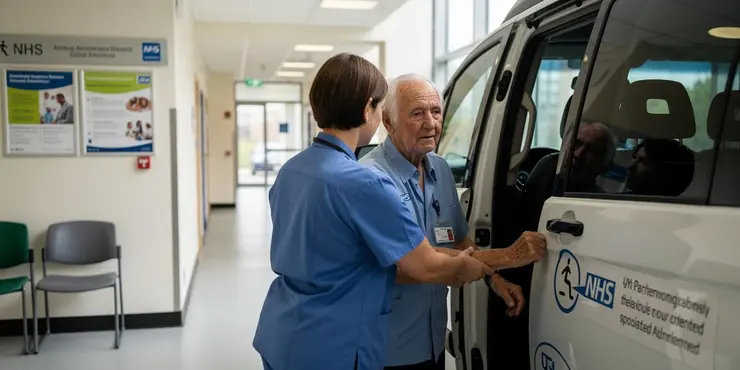
What transportation services are available for Alzheimer's patients and their carers?
Relevance: 10%
-
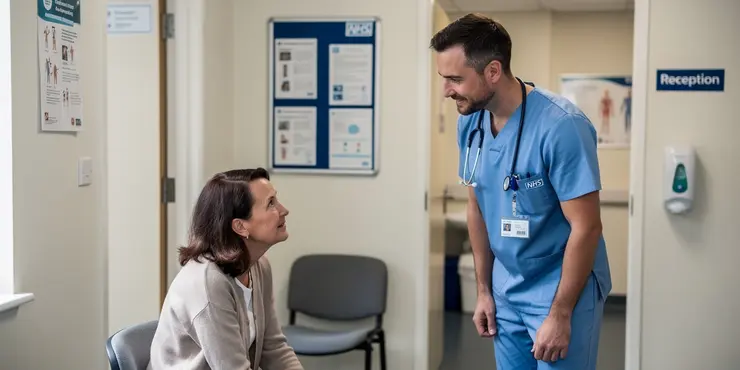
Can men be perpetrators of honour based abuse?
Relevance: 9%
-
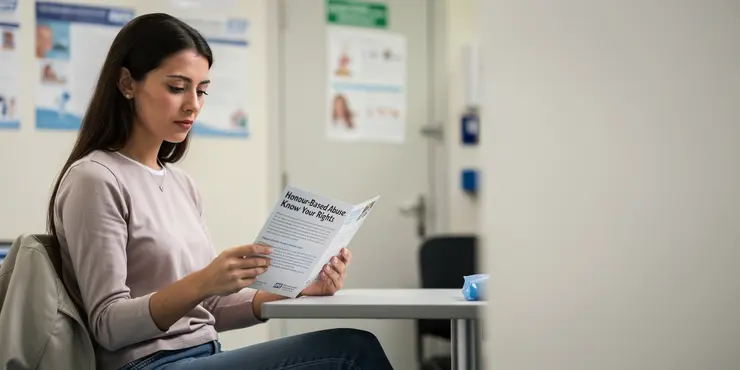
Who can be a victim of honour based abuse?
Relevance: 9%
Understanding Dementia-Friendly Communities
A dementia-friendly community is an environment where people with dementia are understood, respected, and supported. These communities aim to help those with dementia live well and engage in daily activities with minimal stress or barriers. By fostering social inclusion and enhancing quality of life, dementia-friendly communities create spaces where people with cognitive impairments can thrive.
Importance of Dementia-Friendly Initiatives
With an ageing population, dementia has become a growing concern in the UK. It is estimated that by 2025, over one million people in the UK will be living with dementia. Dementia-friendly initiatives are vital as they address the specific needs of this group, promoting awareness and accommodating their challenges. By making communities more accessible and inclusive, we not only support those with dementia but also their carers and family members, helping to reduce stigma and social isolation.
Key Elements of a Dementia-Friendly Community
A dementia-friendly community often includes several key elements. First, public awareness and education are crucial. Community members, businesses, and services need to understand dementia and know how to interact sensitively with people affected by it. Secondly, environments—both physical and social—should be adapted to suit the needs of those with dementia. This might involve clear signage, appropriate lighting, and supportive customer service in businesses and public spaces.
Moreover, people with dementia should have access to community services and activities that are safe and purposeful. This includes providing convenient and safe transport options, opportunities for social engagement, and support groups. Involvement in community decision-making should also be encouraged, ensuring that the voices of those with dementia are heard and respected.
Role of the UK Government and Organisations
The UK Government, along with various organisations like the Alzheimer’s Society, play a significant role in promoting dementia-friendly communities. They provide resources, conduct research, and facilitate programmes aimed at improving understanding and support for people with dementia. Initiatives like the Dementia Friends programme, which educates people on how to support those with dementia, are examples of effective advocacy efforts.
Becoming a Dementia-Friendly Community
For a community to become dementia-friendly, commitment across multiple sectors is required. This involves local governments, businesses, healthcare providers, and the community at large working together. Training sessions, awareness campaigns, and community design changes can all contribute to building such an environment. By prioritising inclusivity and understanding, communities across the UK can ensure that individuals with dementia are valued members of society with the ability to live fulfilling lives.
Understanding Dementia-Friendly Communities
Dementia-friendly communities are places where people with dementia feel understood, respected, and supported. These communities help people with dementia live happily and do everyday things with less worry. They make sure everyone can join in activities and have a good life. People with dementia can shine in these spaces.
Importance of Dementia-Friendly Initiatives
As more people get older, dementia is becoming more common in the UK. By 2025, more than one million people might have dementia. It's important to make communities friendly for these people. These efforts help everyone know about dementia and understand the needs of people with it. They make life easier not only for those with dementia but also for their families and carers. This also helps fight loneliness and the feeling of being left out.
Key Elements of a Dementia-Friendly Community
There are important things that a dementia-friendly community needs. First, everyone should learn about dementia. People, shops, and services should know how to be kind and helpful to those with dementia. Also, places should be easy to find your way around. This could mean having clear signs, good lighting, and helpful staff in shops and public areas.
People with dementia need to join in community activities that are fun and safe. They should have easy ways to travel, chances to meet others, and groups that support them. They should also be able to share their ideas when decisions are made in the community.
Role of the UK Government and Organisations
The UK Government and groups like the Alzheimer’s Society help make dementia-friendly communities. They give out information, do research, and run programmes to help people understand dementia. Programmes like Dementia Friends teach people how to help those with dementia.
Becoming a Dementia-Friendly Community
To make a community dementia-friendly, everyone needs to help. This includes local governments, shops, healthcare workers, and everyone in the community working together. They can have training, awareness events, and change how places are built. By focusing on including everyone and understanding their needs, communities in the UK can make sure people with dementia enjoy their lives and feel like valued members of society.
Frequently Asked Questions
What is a dementia-friendly community?
A dementia-friendly community is one that is designed to be inclusive, supportive, and accessible for people living with dementia, helping them to feel understood, respected, and able to participate in community life.
Why are dementia-friendly communities important?
Dementia-friendly communities are important because they help improve the quality of life for individuals with dementia by reducing stigma, promoting social participation, and enabling independence.
What are the key features of a dementia-friendly community?
Key features include accessible public spaces, supportive services, community education about dementia, clear signage, dementia-friendly businesses, and social opportunities for engagement.
How can businesses become dementia-friendly?
Businesses can become dementia-friendly by training staff to understand dementia, providing clear signage, being patient and supportive, and making physical adjustments to enhance accessibility.
What role do local governments play in creating dementia-friendly communities?
Local governments play a role by implementing policies that support accessibility, offering funding for community programs, promoting awareness, and ensuring that public spaces are welcoming to those with dementia.
How does dementia awareness impact a community?
Dementia awareness reduces stigma, increases understanding, encourages empathy, and fosters an environment where people with dementia feel more secure and supported.
Are there specific design considerations for physical spaces in dementia-friendly communities?
Yes, considerations include having clear, consistent signage, using dementia-friendly design in public spaces, ensuring safe street crossings, and providing easily navigable environments.
Can technology support a dementia-friendly community?
Yes, technology can support independence and safety through assistive devices, apps for navigation and reminders, and platforms for social connection and caregiver support.
What types of community programs support people with dementia?
Programs may include support groups, memory cafes, therapeutic activities like music and art sessions, and educational workshops for caregivers and community members.
How can schools contribute to a dementia-friendly community?
Schools can contribute by educating students about dementia, promoting intergenerational programs that engage with older adults, and organizing community awareness campaigns.
What is the benefit of dementia-friendly public transportation?
Dementia-friendly public transportation enhances mobility and independence for people with dementia by providing safe, accessible, and understandable transport options.
How can neighbors support individuals with dementia?
Neighbors can offer friendship, assist with daily tasks, provide a safe environment, check in regularly, and support family caregivers where possible.
What is the role of healthcare providers in dementia-friendly communities?
Healthcare providers can offer appropriate care, guidance, and information on dementia, collaborate with community initiatives, and advocate for dementia-friendly practices.
How does public awareness help create a dementia-friendly community?
Public awareness helps by reducing fear and misunderstanding, encouraging community involvement, and promoting policies and practices that support people with dementia.
What barriers exist in creating dementia-friendly communities?
Barriers include lack of understanding, insufficient funding, inadequate infrastructure, and social stigma associated with dementia.
How can family members support a dementia-friendly community?
Family members can participate in educational programs, advocate for accessible services, and engage in initiatives that support inclusivity and awareness.
What role do nonprofits play in developing dementia-friendly communities?
Nonprofits can provide resources, advocacy, training, community programs, and serve as a bridge to connect various stakeholders in dementia care.
Can a dementia-friendly community benefit other groups besides those with dementia?
Yes, these communities also benefit families, caregivers, and others with accessibility needs by fostering inclusivity and better-designed public spaces.
What types of training programs are important for a dementia-friendly community?
Training programs should focus on increasing dementia awareness, communication strategies, understanding symptoms, and how to offer assistance and support effectively.
How can individuals advocate for a more dementia-friendly community?
Individuals can raise awareness, engage in volunteer opportunities, promote dementia education, support policy changes, and participate in community planning processes.
What is a dementia-friendly community?
A dementia-friendly community is a place where people with dementia feel safe and happy.
These communities help people with dementia do things like shopping or visiting friends. They have signs that are easy to read and people who are kind and understanding.
Some tools that can help in these communities are bright signs and name tags for people. It can also help to have pictures with words so everyone can understand.
Being patient and speaking clearly can also make a big difference for people with dementia.
A dementia-friendly community is a place where people with dementia feel welcome. It is a place that helps them join in, feel understood, and respected. It is easy to get around, and people are kind and helpful.
Why are communities friendly to people with dementia important?
Some people have a sickness called dementia. It makes it hard for them to remember things or do some tasks.
Communities that are friendly to people with dementia help them feel safe and happy.
These communities make sure everyone knows how to help people with dementia.
Tools like picture signs and memory aids can help people with dementia find their way around and remember things.
Families and friends can also use special techniques to help and support their loved ones with dementia.
Dementia-friendly places are important. They make life better for people with dementia. They help by stopping negative ideas, encouraging people to join in, and helping people to do things by themselves.
What makes a community friendly for people with dementia?
A dementia-friendly community is a place where people with dementia feel safe and supported. Here are some important things that help:
- Clear Signs and Directions: Use signs with pictures and clear words to help people find their way.
- Kind and Helpful People: Encourage everyone to be patient and offer help when needed.
- Safe Places to Walk: Make sure streets and parks are safe and easy to walk in.
- Quiet Areas: Have calm places where people can rest and relax.
Using these ideas can help everyone feel included and comfortable.
Important things to help people with dementia:
1. Places everyone can use, like parks and buildings.
2. Help and support services for people with dementia.
3. Teach the community about dementia so everyone understands.
4. Easy-to-read signs to help people find their way.
5. Shops and businesses that are kind to people with dementia.
6. Fun activities where people can meet and talk with others.
How can businesses be better for people with dementia?
Here are some ways to help:
- Use clear signs with pictures. This can help people find their way.
- Train workers to be kind and patient. It's important to listen and be helpful.
- Make places easy to walk around. Keep floors clear and have places to sit.
- Have good lighting. This helps people see better.
- Use simple words. Talk slowly and clearly.
Using these ideas can help people with dementia feel welcome and safe. Tools like picture cards or a buddy system can also be helpful.
Businesses can help people with dementia by:
- Teaching staff about dementia.
- Putting up easy-to-read signs.
- Being patient and kind.
- Making changes to help people get around easily.
Tools or techniques to assist include using simple language, pictures, and clear instructions.
What do local governments do to help people with dementia in their community?
Local governments help make communities friendly for people with dementia. Here are some ways they help:
- Make public spaces easy to use, like parks and buildings.
- Offer special training for people who work with the public.
- Support programs that help people with dementia feel included.
If you want to learn more or need help, you can:
- Talk to someone in your local government office.
- Look for information at your local library.
- Use simple and helpful tools, like picture guides or reminder notes.
Local governments help by making rules that make things easier for everyone. They give money to help community programs. They also teach people about dementia and make sure public places are friendly and safe for people with dementia.
How does knowing about dementia help a community?
Knowing about dementia helps everyone understand it better. People can learn how to help and support those with dementia. This makes the community kinder and friendlier. Encouraging people to talk about dementia and share their stories is helpful. Using pictures and simple words can make it easier to understand.
Learning about dementia helps everyone understand it better. It makes people kinder and creates a safe place for those with dementia to feel supported and not alone.
How can we make places better for people with dementia?
Here are some tips to help:
- Use bright and simple signs to help with directions.
- Make sure there is good lighting so people can see well.
- Keep spaces calm, not too busy or noisy.
- Use different colors for floors and walls to help people know where they are.
Yes, we need to think about some important things. We need clear signs that look the same everywhere. We should make places easy to use for people with memory problems. Street crossings should be safe to use. Places should be easy to walk around without getting lost.
Here are some things that might help:
- Use pictures and symbols on signs.
- Bright colors can help signs stand out.
- Keep walkways clear of things that might trip people up.
- Have helpers or guides available to give directions.
Can computers and gadgets help people with memory problems?
Yes, technology can help people be more independent and safe. It can do this with special tools, apps that help with getting around and remembering things, and places to connect with friends and get help from carers.
What programs help people with dementia?
There are special programs that help people who have dementia. These programs are in the community and include:
- Activities: Fun things to do, like games and music.
- Support Groups: Meetings where people can talk and listen.
- Day Centers: Places where people can go during the day to be safe and socialize.
- Memory Cafés: Friendly places for people with memory problems to meet others.
Technology, like reminder apps, can also help. Families and friends can use these tools to support their loved ones.
Programs can have fun and helpful activities. These might be:
- Support groups where people help each other.
- Memory cafes where people chat and remember things together.
- Music and art sessions where people can enjoy and relax.
- Lessons for caregivers and the community to learn more.
Using tools like simple planners or setting reminders on a phone can help remember these activities. It's good to ask a friend or family member for support too.
How can schools help make a dementia-friendly community?
Schools can help by teaching kids about what happens when a person has dementia. They can create programs where kids and older adults do activities together. Schools can also plan events to tell everyone in the community about dementia.
Why is dementia-friendly public transportation good?
Here is why it's good:
- It helps people remember things better.
- Makes it easier to travel alone.
- Keeps people safe when traveling.
- Makes people feel happy when using transport.
Some things that help:
- Bright signs and pictures to show the way.
- Friendly staff who can help if needed.
- Clear audio announcements.
Public transport that is friendly for people with dementia helps them to get around safely and on their own. It is made to be safe, easy to use, and simple to understand.
How can neighbors help people with dementia?
Neighbors can do kind things to help people who forget a lot because of dementia. Here are some ways:
- Say hello and talk to them so they feel happy.
- Check on them to make sure they are okay.
- Help them if they get lost or confused.
- Invite them to join simple activities, like a small game or a walk.
- Call for help if there is an emergency.
Support tools can also help, like:
- Using reminder notes for important things like doctor visits.
- Using pictures or drawings to help explain things.
- Helping them use a phone or device to remind them of things.
These small actions can make a big difference for people with dementia.
Neighbors can be good friends. They can help with jobs at home, make sure the area is safe, check on you often, and help people who look after family members.
What do healthcare helpers do in communities for people with dementia?
Healthcare helpers are doctors, nurses, and other people who care for our health. They help make the community a good place for people with dementia.
Dementia is an illness that makes it hard for some people to remember things or think clearly. It is important that they get help and feel safe.
Here are some things healthcare helpers do:
- They teach people in the community about dementia, so everyone can help and be kind.
- They make sure people with dementia get the right medicine and care.
- They help families and carers understand how to look after someone with dementia.
- They work with other community helpers to make sure places are comfortable for people with dementia.
To help understand more about dementia, you can use pictures, short videos, or ask for someone to explain things simply.
Doctors and nurses can help people with memory problems. They can give good advice, share important information, and work with local groups. They also speak up to make places better for people with memory issues.
How can people learning about dementia make our community better for everyone?
If more people know about dementia, it can help everyone. People will understand what dementia is and how it affects others.
When we know more, we can be kinder and more helpful. This makes life easier for people with dementia.
To help, use pictures or stories. These can make things easier to understand. Talking and listening can help, too.
Helping people know more about dementia can make a big difference. It can help them be less afraid and understand better. It also encourages people to help out in their communities and suggests good rules and ideas to support those with dementia.
What makes it hard to make places good for people with dementia?
There are some things that can make it hard. People might not understand. There might not be enough money. The places might not be built right. Some people might feel worried because of how others think about dementia.
How can family members help a community where people with dementia feel safe?
Families can join learning programs, ask for services that everyone can use, and help with projects that make sure everyone is included and understood.
How do nonprofits help make communities good for people with dementia?
Charities can help in many ways. They can give things people need, speak up for people, teach important skills, run community programs, and bring people together to help those with dementia.
Do dementia-friendly places help other people too?
Dementia-friendly places are good for people with dementia. But they also help others! They make everyone feel welcome and safe.
Tip: Use pictures and signs to help understand better. Ask someone for help if you need it.
Yes, these communities help families, caregivers, and people who need extra support. They make sure everyone is included and make public spaces easier for everyone to use.
What kinds of training help make a dementia-friendly community?
It is good to teach people how to help those with dementia. Here are some ideas:
- Classes for learning about dementia.
- Practice how to talk and listen to people with dementia.
- Learn how to make places safe and easy to use.
- Help people know where to get more support.
Use pictures or videos to make things easier to understand. You can also ask for help from a friend or use talking apps that explain things out loud.
Training programs should help people learn about dementia. They should teach how to talk to someone with dementia. They should help people learn the signs of dementia and show how to help and support people with it.
How can people help make the community better for those with dementia?
Here are some ways to help people with dementia feel welcome and safe in the community.
- Learn about dementia. Knowing more helps us be kinder.
- Be patient and understanding with people who have dementia.
- Help make signs and places easy to understand.
- Create safe spaces where people with dementia can relax.
Using pictures, simple words, and easy maps can also help a lot.
People can help by telling others about dementia. They can also volunteer to help people with dementia. Learning about dementia is important too. It is good to tell the government to make better rules to help people with dementia. Joining local community groups is also a great way to help plan and share ideas.
Useful Links
This website offers general information and is not a substitute for professional advice.
Always seek guidance from qualified professionals.
If you have any medical concerns or need urgent help, contact a healthcare professional or emergency services immediately.
Some of this content was generated with AI assistance. We’ve done our best to keep it accurate, helpful, and human-friendly.
- Ergsy carfully checks the information in the videos we provide here.
- Videos shown by Youtube after a video has completed, have NOT been reviewed by ERGSY.
- To view, click the arrow in centre of video.
- Most of the videos you find here will have subtitles and/or closed captions available.
- You may need to turn these on, and choose your preferred language.
- Go to the video you'd like to watch.
- If closed captions (CC) are available, settings will be visible on the bottom right of the video player.
- To turn on Captions, click settings .
- To turn off Captions, click settings again.
More Items From Ergsy search
-

What is a dementia-friendly community?
Relevance: 100%
-
What is a dementia-friendly community?
Relevance: 52%
-
What is a dementia-friendly community?
Relevance: 52%
-

Are there mentorship programs for community helpers?
Relevance: 31%
-

What is the importance of self-care for community helpers?
Relevance: 30%
-

Are there online resources available for community helpers?
Relevance: 30%
-
What help is available to helpers in the community?
Relevance: 30%
-

Can community helpers participate in policy-making?
Relevance: 30%
-

What is the role of community hubs in supporting helpers?
Relevance: 28%
-

Can community helpers receive financial assistance?
Relevance: 28%
-

What types of support are available for community helpers?
Relevance: 28%
-
Do community helpers have access to legal advice?
Relevance: 28%
-
Impact of UK Housing Crisis on Local Communities
Relevance: 28%
-

Where can community helpers find networking opportunities?
Relevance: 27%
-
How can community helpers access educational resources?
Relevance: 27%
-

What are peer support groups for community helpers?
Relevance: 27%
-

How do community helpers stay updated on best practices?
Relevance: 27%
-

How can community helpers prevent burnout?
Relevance: 27%
-

How can community helpers access emergency assistance?
Relevance: 27%
-

Can community helpers access physical health resources?
Relevance: 27%
-

What is the role of community centers in supporting senior citizens?
Relevance: 27%
-

The Rise of Community Food Banks: Combating Hunger Locally
Relevance: 27%
-

Are there any online communities for older adults interested in hobbies?
Relevance: 27%
-

What online communities exist for carers of people with Alzheimer's?
Relevance: 27%
-

Impact of Housing Shortage on Local Communities
Relevance: 26%
-

Addressing the Rising Cost of Living: Community Support and Resources
Relevance: 26%
-

Addressing the Cost of Living Crisis: Community Support and Resources
Relevance: 24%
-

Tackling Youth Mental Health: Community Initiatives and Solutions
Relevance: 24%
-

Are there training programs available for community helpers?
Relevance: 23%
-

Can community helpers be recognized for their contributions?
Relevance: 23%
-

Do community helpers need to be volunteers, or can they receive compensation?
Relevance: 21%
-

What role do nonprofit organizations play in supporting community helpers?
Relevance: 20%
-

How can community helpers get mental health support?
Relevance: 19%
-

Funeral Costs - Where to get help? - Community Legal Education
Relevance: 18%
-
Living with dementia | NHS
Relevance: 18%
-

What lifestyle changes can help someone with dementia?
Relevance: 13%
-

Can neighborhood associations help resolve this issue?
Relevance: 10%
-

What transportation services are available for Alzheimer's patients and their carers?
Relevance: 10%
-

Can men be perpetrators of honour based abuse?
Relevance: 9%
-

Who can be a victim of honour based abuse?
Relevance: 9%


